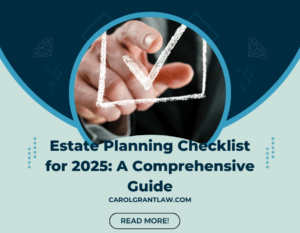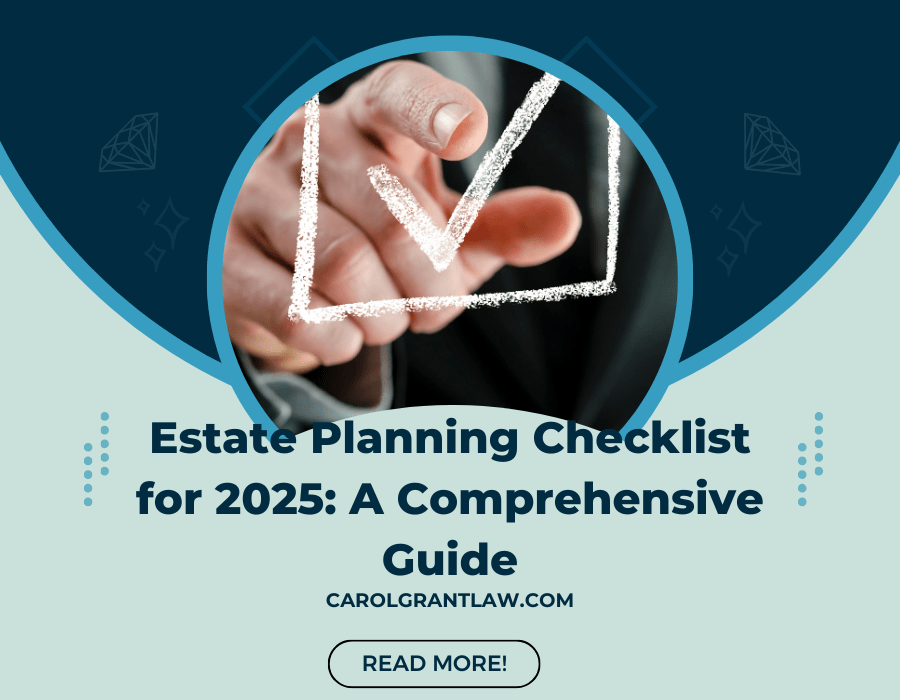Estate planning is more than writing a will; it’s a plan to manage and distribute assets to your loved ones. It documents your healthcare preferences, so a loved one decides on medical care according to your wishes. The National Council on Aging (NCOA) Adviser’s article, “Estate Planning Guide and Checklist for 2024,” offers a comprehensive overview of what to consider when planning your estate. This blog post distills the key points from the article and provides an actionable checklist for 2025.
 Understanding Estate Planning
Understanding Estate Planning
Estate planning organizes your affairs to fulfill your wishes after you pass away. It encompasses decisions about money, property, medical care, and dependent care. The process includes creating essential documents like wills, trusts, powers of attorney, and living wills. Estate planning is a way to provide peace of mind that your wishes are known and respected, benefiting your loved ones.
Key Documents in Estate Planning
- Wills: A legal document that outlines how to distribute assets after your death. A Will also allows you to name a guardian for your minor child.
- Trusts: Contracts that allow a third party, or trustee, to hold property and other assets on behalf of a beneficiary.
- Powers of Attorney: Legal documents that grant someone else the authority to make decisions on your behalf, in general or specific situations regarding your finances and other property.
- Living Wills: Documents that state your wishes regarding medical treatment when you cannot communicate your choices.
- Health Care Surrogate Designation: Allows someone else to make medical decisions for you when you are unable to speak for yourself.
Key Takeaways
- Common Estate Planning Documents: Wills, trusts, powers of attorney, health care surrogate designation and living wills are fundamental to estate plans.
- Everyone Needs a Will: Regardless of the size of your estate, a will is crucial to fulfill your wishes.
- Update Your Estate Plan Regularly: Significant life events necessitate updating your estate plan to reflect your current wishes and circumstances.
I’ve created a video to help explain the importance of getting started with estate planning, and how easy it can be! https://www.youtube.com/watch?v=h8tDsW9gHes
Conclusion
Estate planning is a critical process to protect your assets, provide for beneficiaries and have peace of mind for the future. Follow the NCOA Adviser’s comprehensive checklist to get started on the path to creating your own estate plan. Once you’ve gathered your information, book a call so that we can help you put together your estate plan!
Reference: NCOA Adviser (Aug 21, 2023): Estate Planning Guide and Checklist for 2024.








